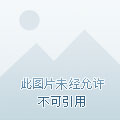summary
Zhongqing commented
Reading is never a matter of a day or two, but a way of life that can accompany people for a lifetime.
Recently, on the occasion of World Book Day, friends frankly said in the chat: The time to read after work has decreased significantly, as long as you do not touch the book for a few days, you will be a little panicked in your heart, and you always feel that there is something missing in life. At a time when the pace of life is obviously accelerating and video content continues to impact the eyeballs, her "non-reading panic" is precious and rare.
It is reasonable to say that there is the "best time" for reading, as long as there is a heart, every day can be their own reading day. It's just that too often, our energy will be distracted by the endless flow of information, bound by the complicated trivia of work, so that we completely forget the existence of books and forget the need to read. Ritualistic settings such as reading days and reading months are actually more of a kind reminder to reflect on how long we have not been immersed in books.

Image source: Visual China
Some people say that after walking out of the campus, you will find that the "cost performance" of reading is not high, and there is not much visible "income". But the greatest benefit of reading is never in the superficial form of immediate effect. When we read philosophical books such as the Tao Te Ching and the Republic, we may not be able to obtain ready-to-use knowledge from them, but we can obtain the exercise of the mind through one thought experiment after another and sentence by sentence "soul torture", and learn the methodology of understanding society and the world. Reading the works of writers with obvious regional characteristics such as Jin Yucheng, Shuang Xuetao, and Zhou Kai, we can also broaden our horizons without leaving home, and feel the customs and customs of different regions such as Shanghai, Northeast China, and Sichuan... Knowledge is not to be shown off, but to be thought about and perceived. Everyone's reading history is a faithful portrait of their spiritual world. In a way, it determines whether this river of ideas is abundant or boring.
Moreover, after leaving the campus, deep reading is actually more necessary for us. As we get older, everyone develops an innate perception of common things. Without serious thinking, it is easy to be blinded by prejudice and unable to see the essence of the problem. Deep reading may not provide "standard answers" and sometimes challenge our existing cognition. But it is precisely in the debate and confrontation of this point of view that we have the motivation to re-examine the problem, learn to penetrate the appearance, and recognize the underlying logic of things, so as to eradicate cognitive narrowness and arrogance, and become a more open and inclusive person.
In fact, when social experience gradually accumulates, people often have different understandings when they look back at classic works. What struck me the most recently was the rereading of sociological works. Previously, "consumerism", "bureaucratic system", "alienation", etc. were more abstract concepts for me, lacking intuitive understanding. However, as I see the social problems such as grass-roots formalism and excessive overtime around me, I feel the transformation from paying for the brand premium to returning to rational consumption, and I can't help but re-read classic works such as "Economy and Society" and "Sociological Imagination" with problem awareness. Human experience and book knowledge are often complementary to each other, using theoretical tools to analyze social phenomena, and letting knowledge "land" in life experience, in order to truly achieve the application of learning, the unity of knowledge and action.
Image source: Visual China
There are many reasons to read, and there are thousands of excuses for not reading. In the Internet age, people always like to complain about the distraction of fragmented information and complain about the impact of information flow on attention, as if the Internet is the "poison" that hinders reading. But in fact, with the best use of technology, the Internet can also be used to create a "reading-friendly" environment. For example, various reading apps on the Internet, as well as activities such as the "Duoduo Reading Month" initiated by the e-commerce platform Pinduoduo, are all allowing consumers to contact more good books through technical means and price subsidies, so as to promote the realization of the goal of "reading for all" and carry out the knowledge universalization to the end. The videos and podcast content produced by some scholars and knowledge bloggers can also stimulate the audience's interest in reading through vivid and interesting explanations, so that more people can fall in love with reading.
Reading is never a matter of a day or two, but a way of life that can accompany people for a lifetime. Maybe there will always be trifles in life, and work will always consume energy, but in our leisure time, we will always have the opportunity to pick up books and carve our own reading time with our hearts.
Written by Lee Connie
WeChat Editor/Ren Guanqing
Produced by China Youth Daily and China Youth Network